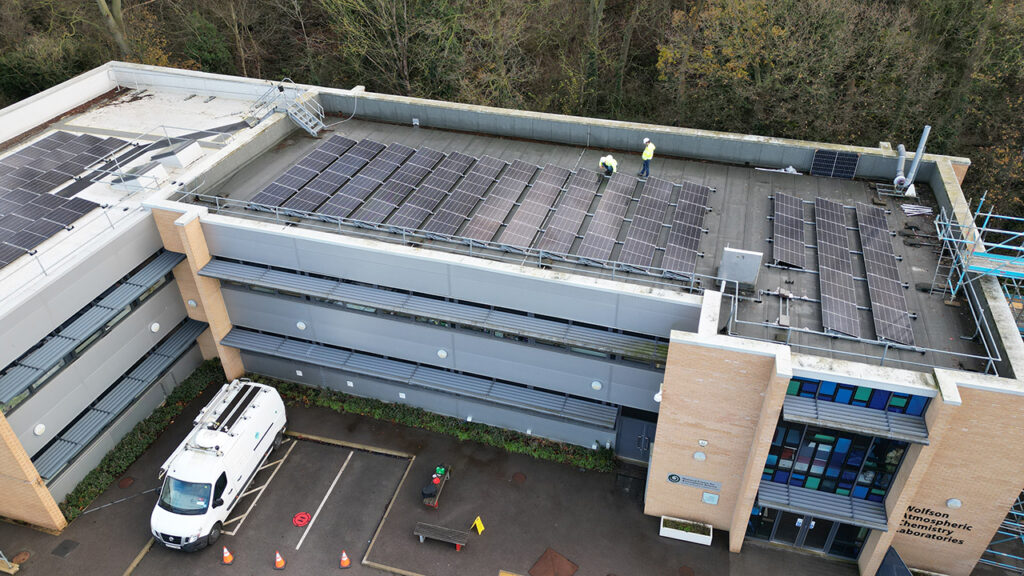
NCAS’s renewable recap for International Day of Clean Energy
Sunday 26 January was International Day of Clean Energy – a reminder to switch to clean energy for the sake of people and the planet.
A transition to clean energy is key to fighting climate change. Most greenhouse gases come from burning fossil fuels (oil, coal, and gas) for electricity and heat.
The science is clear: to tackle climate change, we need to ditch fossil fuels and invest in clean, accessible, affordable, sustainable, and reliable energy sources. Renewables like solar, wind, water, waste, and geothermal are all around us, naturally replenished, and emit little to no greenhouse gases or pollutants.
In recognition of this, we’ve done a “Renewable Recap”
Last year NCAS:
Used solar energy systems to power atmospheric chemistry laboratories and observatories in York, Weybourne, and Rothamsted in the UK – enabling lower carbon research into air pollutants, greenhouse gas levels, and flying insects!
Powered a storm-tracking weather radar with biofuel for the first time. A pair of steerable weather radar were powered by GreenD+ HVO biofuel generators, instead of diesel fuel sourced from crude oil, which reduced greenhouse gas emissions by up to 90%.
Invested in an electric-powered ground power unit and aircraft tug, in a significant move towards reducing carbon emissions from our research aircraft’s operation.
Relied on solar panels and wind turbines for energy at a remote camp on Greenland’s ice sheet summit – making a research team’s daily life and measurements of melting ice and climate conditions possible. Find out about the ICECAPS-MELT research project.
Got access to a reliable store of sustainable aviation fuel, after new fuel storage and aircraft fuelling infrastructure was installed at Cranfield Airport. This means our FAAM Airborne Laboratory’s research aircraft can fill up on sustainable aviation fuel when flies from its home base in Bedfordshire.
Joined the Concordat for the Environmental Sustainability of Research and Innovation. Alongside other signatories, we commit to taking immediate and ongoing action to reduce our organisation’s environmental footprint.
This was all made possible through advice, collaboration, or funding from our host institutions, research partners, and wider environmental science community.
This year:
Even more solar power will be installed at the Cabo Verde NCAS atmospheric observatory to support crucial long-term measurements in the tropical marine environment.
A brand-new solar farm will supply 65% of the electricity demand from The University of Manchester. This will help provide clean energy to NCAS’s offices and laboratories based there. Read more about the Medebridge Solar Farm.
There’s been a green light for a ground-mount solar facility for the University of Surrey too, where NCAS operates an Environmental Flow Wind Tunnel for studying a wide range of atmospheric boundary layer conditions and pollutant dispersion processes.
